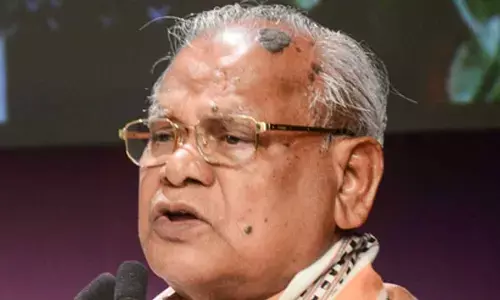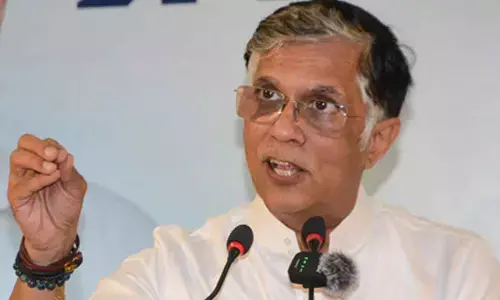Annie Besant–A great humanist

Annie Besant (1 October 1847 – 20 September 1933) is a prominent British socialist, theosophist, women\'s rights activist, writer and orator and supporter of the Irish and the Indian self-rule.
 Annie Besant (1 October 1847 – 20 September 1933) is a prominent British socialist, theosophist, women's rights activist, writer and orator and supporter of the Irish and the Indian self-rule. Her life is one of incredible activity.
Annie Besant (1 October 1847 – 20 September 1933) is a prominent British socialist, theosophist, women's rights activist, writer and orator and supporter of the Irish and the Indian self-rule. Her life is one of incredible activity.
She married Rev Frank Besant, at a tender age of 19. However, they split as her independent sprit clashed with the traditional views of her husband.
Besant completely rejected Christianity. In 1874, she joined the Secular Society. Charles Bradlaugh, editor of the radical ‘National Reformer’ and leader of the secular movement in Britain, gave her a job. She wrote many articles on issues such as marriage and women's rights. In 1877, she and Charles Bradlaugh published ‘The Fruits of Philosophy,’ which advocated birth control. Besant and Bradlaugh were charged were found guilty of publishing an "obscene libel" and sentenced to six months in prison. At the Court of Appeal, the sentence was quashed.
Besant wrote and published her own book advocating birth control entitled’ The Laws of Population’. The idea of a woman advocating birth control received wide publicity.
She became friends with socialists such as Walter Crane. After joining the Social Democratic Federation, she started her own campaigning newspaper called The Link. In 1889 Annie Besant was elected to the London School Board. During 1870s and 1880s, she promoted the secularist cause with remarkable vigor. She became a vice-president of the National Secular Society, the members of which thought almost as highly of her as they did of Charles Bradlaugh, the president. In a sensational move in 1889, however, she joined the Theosophical Society and shocked her closest friends. Besant thus moved from the materialist atheism of the secularists to the New Age thought of the theosophists. Theosophy was based on Hindu ideas of karma and reincarnation. She came to India but she remained interested in the subject of women's rights.
She founded the Central Hindu College at Benares (Varanasi) in 1898. While in India, Annie joined the struggle for Indian Home Rule, and in 1916 established the Indian Home Rule League and became its president. During this period Annie Besant started a college at Madanapalle in Chittor district in Andhra Pradesh. She became the president of the Indian National Congress in 1917, but later split with Gandhi.
Annie succeeded Olcott as President of the Theosophical Society. She clearly identified its role as a religious and cultural one to the exclusion of politics. By 1915, however, she founded the All India Home Rule League in a clear attempt to foist a more radical political programme on the Indian National Congress.
Her success in doing so climaxed, moreover, with her being elected as the President of the Congress in 1917. In collaboration with distinguished Indian Philosopher, Dr Bhagvan Das, she translated the Bhagavad Gita into English. During this part of her Indian career, she did her best to revive respect for the ancient teachings of Hinduism and the other great faith.
Besant was not content with merely proclamation of the goal of home rule for India as a unit in the British Commonwealth. At the end of the First World War, she declared in London before a Parliamentarian Committee that India could not accept for all time a Constitution rammed for her by the British Government in London. She proceeded with the warm support of men like Sir Tej Bahadur Sapru and the Rt. Hon'ble V S Srinivasa Sastri, to have a Constitution for India as a full-fledged Dominion prepared through a National Convention (this fact is not popularly highlighted). The measure, described later as "The Commonwealth of India Bill,” was supported by several leading Indian statesmen.
As President of the Theosophical Society from 1907, she wrote a number of books and pamphlets on Theosophy. She travelled (1926-27) in England and the United States with Jiddu Krishnamurti, whom she announced as the new Messiah. Her life embodies the relationship between secularism and theosophy.
The people of Rayalaseema, specially Madanapalle students of B T College, owe much to her. Having benefited and inspired by her sacrifices, we need to carry forward her mission. The Indian Posts and Telegraphs Department has a great pleasure in bringing out a special stamp to honour this great lady.




